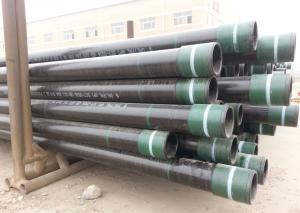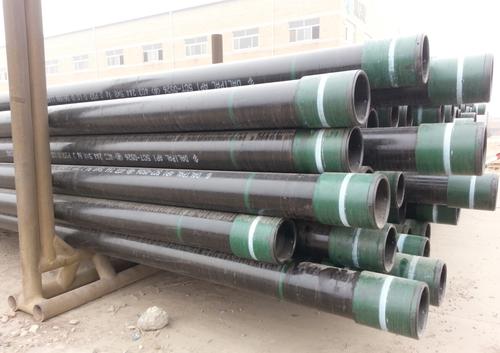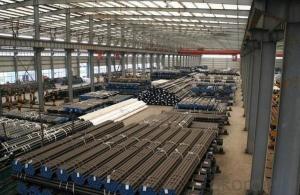API 5CT H40 casing pipe for water well
- Loading Port:
- China Main Port
- Payment Terms:
- TT OR LC
- Min Order Qty:
- -
- Supply Capability:
- -
OKorder Service Pledge
OKorder Financial Service
You Might Also Like
API 5CT H40 Quality Standard
SY/T 6194 -------------Petroleum and natural gas industries Steel pipes for use as casing or tubing for wells
API 5CT----------------CASING AND TUBING
BS EN ISO 11960 ---Petroleum and natural gas industries Steel pipes for use as casing or tubing for wells
NF M87-207 ----------Petroleum and natural gas industries Steel pipes for use as casing or tubing for wells
JIS G3439 ------------SEAMLESS STEEL OIL WELL CASING, TUBING AND DRILL PIPE
IS 4270 ----------------Steel tubes for well spainend casing pipes
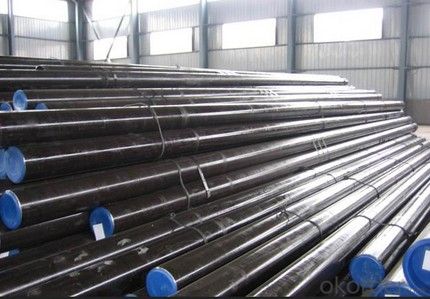
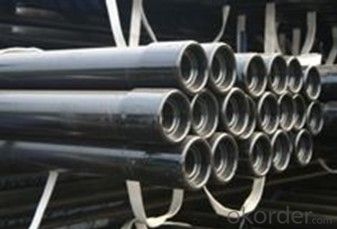
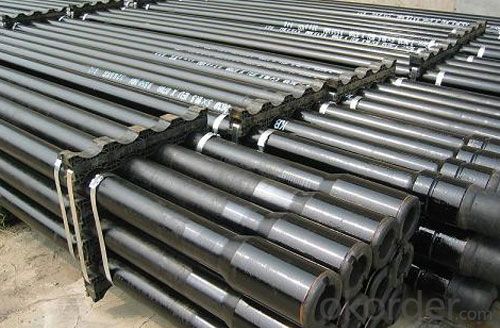
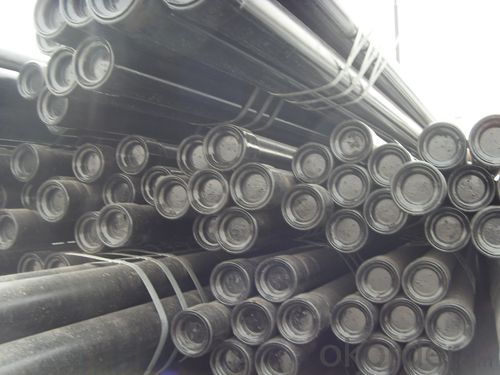
API 5CT H40 casing pipe for water well
Our company produces H40 casing pipe strictly according to the API 5 CT standards.Dalipal Company is one of the most famous enterprises of china professionally producing pipeline and oil casing.We can supply API 5CT series of pipeline and oil casing with all kinds of specifications and materials.We have first-class production equipment and technology.
Main Specification
Grade | API 5CT H40 Casing Pipe for water well |
External thickness | “4 1/2- 20”inch, (114.30- 508.00 mm) |
Wall thickness | 5.21-16.13 mm |
Thread form | BC(buttress casing),LC( long casing),SC( short casing) |
Function | used for protecting pipeline |
Length:
R1-(6.10m~7.32m),R2-(7.62/8.53)~10.36m,R3-(10.36/10.97~14.63m)
Certificate:
API 5CT,Russian Certificate,ISO,CCS
Packing:
Coating and steel thread protector
Usage:
Casing pipes are used for oil , gas and water wells. Steel casing pipes and tubing are applied to furnishing and installing cased tunnels, where they indicate to pass other utilities or obstructions without open excavation. Steel casing pipes and tube have smooth wall and a minimum yield strength of 35,000 psi. Corrosion-proofing water-based paint is applied on the outside pipe surface to protect against atmospheric corrosion during transportation and storage. The pipes can be delivered with metal or composite caps at both ends for thread protection.Casing pipes are manufactured out of steel are smelted in the electric furnace, treated with synthetic slags and cast by continuous casters. The applied steel making process ensures the achievement of chemically pure steel with reference to sulphur and phosphor contents providing high tensile, ductility and corrosion resistance properties of pipes to be operated at low temperatures in various corrosion media. Pipes are heat-treated in a computerized walking beam furnace. Steel grades and heat treatment regimes applied allow high-strength pipe to be obtained.
API Specification 5CT / ISO 11960
Hydrostatic test pressure for Grade H40 tubing
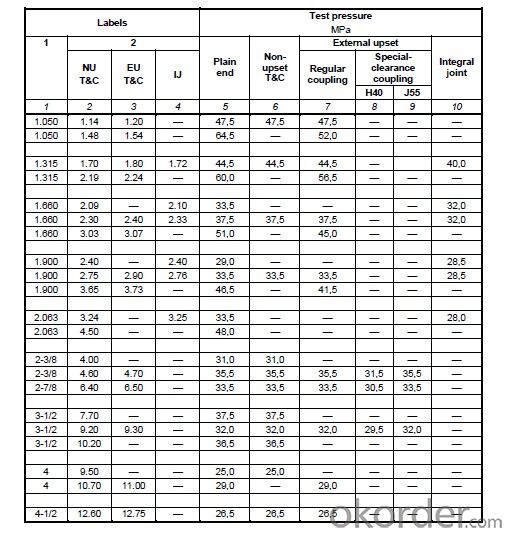
We have the ability to detect the whole process. We can fully guarantee the high quality of the products.
80t electric arc furnace smelting→ LF refining → VD vacuum degassing treatment→4 machine 4 strand machine →slow cooling pit slow cooling → rolling →fine grinding → straightening → heat treatment→ machining →inspection→packaging → warehousing.
Dalipal Company is one of the most famous enterprises of china professionally producing pipeline and oil casing.We can supply API 5CT series of pipeline and oil casing with all kinds of specifications and materials.We have first-class production equipment and technology.
- Q:How are steel pipes used in the manufacturing of conveyor systems?
- Steel pipes are commonly used in the manufacturing of conveyor systems to provide a durable and reliable structure for transporting various materials. They are typically used as the main framework for the conveyor system, supporting the conveyor belt and other components. Steel pipes are known for their strength and resistance to wear and tear, making them ideal for handling heavy loads and withstanding continuous use. Additionally, steel pipes can be easily shaped and welded, allowing for customization and flexibility in conveyor system design.
- Q:How are steel pipes tested for mechanical strength?
- Steel pipes are tested for mechanical strength through various methods such as tensile testing, impact testing, and hardness testing. Tensile testing involves pulling the pipe until it breaks to determine its maximum strength and elasticity. Impact testing measures the ability of the pipe to withstand sudden loads or impacts. Hardness testing determines the pipe's resistance to indentation or scratching, which indirectly reflects its mechanical strength. These tests ensure that steel pipes meet the required standards and can withstand the intended applications.
- Q:Can steel pipes be used for high-temperature applications?
- Yes, steel pipes can be used for high-temperature applications. Steel is a durable and robust material that can withstand high temperatures without deformation or structural failure. It has excellent heat resistance properties, making it suitable for various industrial processes, such as steam lines, power plants, and oil refineries, where high temperatures are involved. The use of specifically designed high-temperature steel alloys further enhances their performance in extreme heat conditions.
- Q:What are the different types of thread connections used in steel pipes?
- There are several types of thread connections commonly used in steel pipes, including tapered threads such as NPT (National Pipe Taper), which are designed to create a tight seal, and straight threads like NPS (National Pipe Straight), which are often used for mechanical applications. Additionally, some other types of thread connections used in steel pipes include BSP (British Standard Pipe), which is widely used in Europe, and API (American Petroleum Institute) threads, which are commonly used in the oil and gas industry.
- Q:What is the difference between Schedule 40 and Schedule 80 steel pipes?
- The main difference between Schedule 40 and Schedule 80 steel pipes is their wall thickness. Schedule 80 pipes have a thicker wall compared to Schedule 40 pipes, making them more suitable for high-pressure applications and heavy-duty industrial use.
- Q:How are steel pipes used in power plants?
- Steel pipes are used in power plants for various purposes such as carrying steam, water, and other fluids, as well as transporting fuel and exhaust gases. They are also utilized in the construction of boilers, heat exchangers, and condensers, ensuring efficient and reliable operation of power generation equipment.
- Q:Can steel pipes be used for underground cooling systems?
- Indeed, underground cooling systems can make use of steel pipes. Thanks to their durability, strength, and resistance to corrosion, steel pipes are widely employed in numerous applications, including underground cooling systems. They are adept at handling the rigorous demands of cooling systems, such as high pressure and temperature requirements. Moreover, steel pipes can be conveniently installed and maintained by means of welding or threading them together. Nonetheless, it is crucial to ensure that the steel pipes are adequately coated or insulated in order to avert corrosion and uphold heat transfer efficiency.
- Q:How are steel pipes used in the construction of airports?
- Steel pipes are used in the construction of airports for various purposes such as drainage systems, fuel pipelines, water supply networks, and structural support for buildings and runways.
- Q:How are steel pipes protected against external corrosion in coastal areas?
- To safeguard steel pipes against external corrosion in coastal regions, a combination of coating and cathodic protection methods is employed. An effective approach involves applying a protective coating onto the steel surface, forming a barrier against corrosive elements like saltwater and humidity present in the coastal environment. Commonly used coating materials, such as epoxy or polyethylene, possess corrosion-resistant properties and offer long-lasting protection. Furthermore, cathodic protection is utilized to enhance the corrosion resistance of the steel pipes. This technique employs sacrificial anodes or impressed current to prevent corrosion. Sacrificial anodes, typically made of zinc or aluminum, are attached to the steel pipe and corrode in place of the steel, sacrificing themselves to safeguard the steel surface. On the other hand, impressed current systems rely on an external power source to provide a protective current, effectively preventing corrosion. Ensuring the effectiveness of the protective coating and cathodic protection system necessitates regular inspection and maintenance. Coatings may degrade over time due to wear and tear, requiring periodic evaluation and reapplication if necessary. Similarly, sacrificial anodes must be replaced when depleted, and impressed current systems need to be monitored and adjusted to maintain the desired level of protection. By combining the application of durable coatings with cathodic protection measures, steel pipes in coastal areas can be adequately shielded against external corrosion, promoting their durability and optimal performance.
- Q:What are the factors to consider when selecting a steel pipe for a specific application?
- When selecting a steel pipe for a specific application, several factors need to be considered. These include the type of fluid or gas being transported, the pressure and temperature conditions, the size and dimensions required, the desired corrosion resistance, and the overall budget for the project. It is also crucial to assess the pipe's material properties, such as its strength, ductility, and toughness, to ensure it can withstand the operational demands of the application. Additionally, factors like the pipe's manufacturing process, compatibility with joining methods, and any specific industry standards or regulations should be taken into account.
1. Manufacturer Overview |
|
|---|---|
| Location | |
| Year Established | |
| Annual Output Value | |
| Main Markets | |
| Company Certifications | |
2. Manufacturer Certificates |
|
|---|---|
| a) Certification Name | |
| Range | |
| Reference | |
| Validity Period | |
3. Manufacturer Capability |
|
|---|---|
| a)Trade Capacity | |
| Nearest Port | |
| Export Percentage | |
| No.of Employees in Trade Department | |
| Language Spoken: | |
| b)Factory Information | |
| Factory Size: | |
| No. of Production Lines | |
| Contract Manufacturing | |
| Product Price Range | |
Send your message to us
API 5CT H40 casing pipe for water well
- Loading Port:
- China Main Port
- Payment Terms:
- TT OR LC
- Min Order Qty:
- -
- Supply Capability:
- -
OKorder Service Pledge
OKorder Financial Service
Similar products
New products
Hot products
Hot Searches
Related keywords
